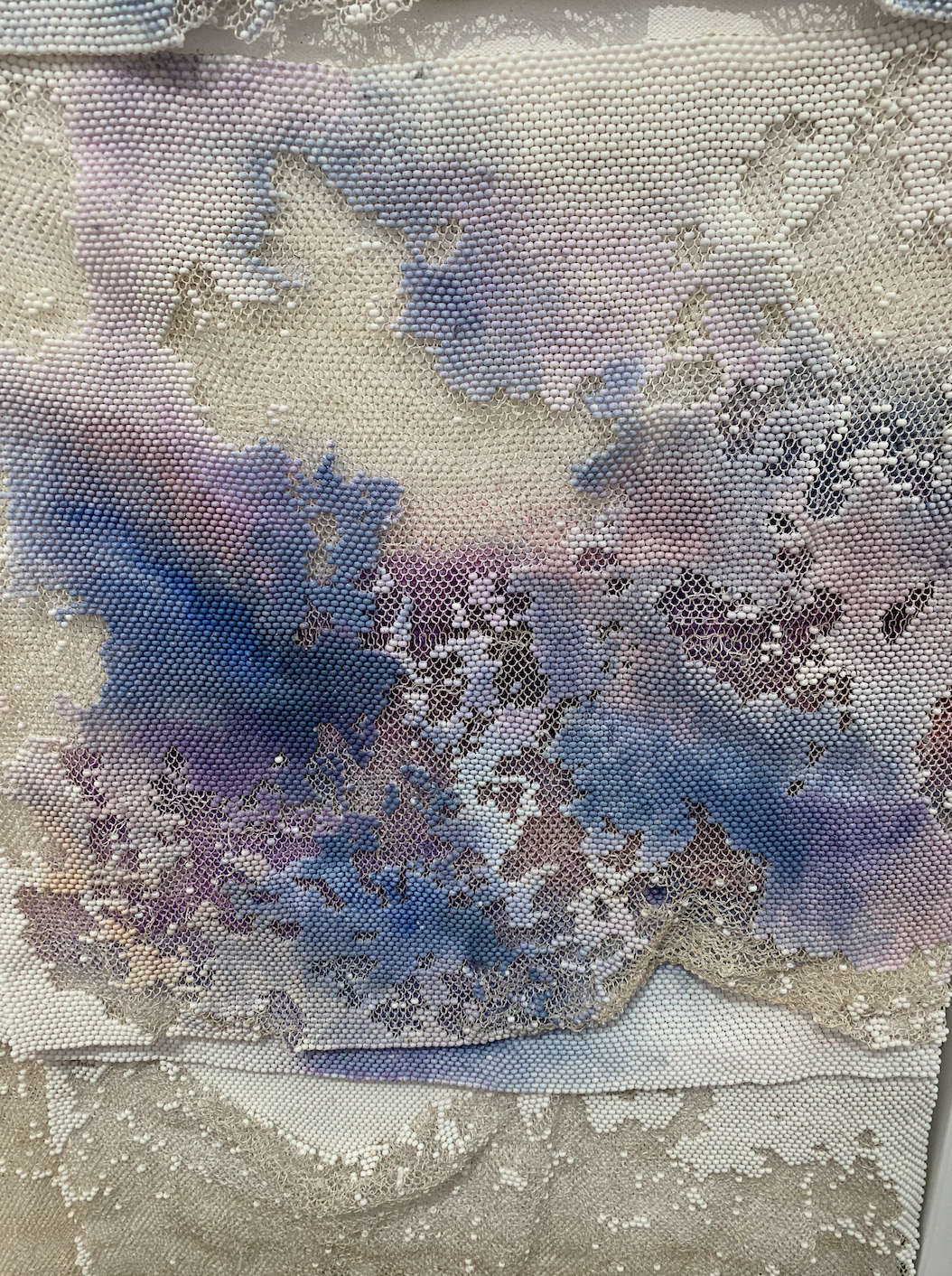Liza Lou
American artist Liza Lou is distinguished for her sculptural installations comprised of thousands of glass beads. Working within a feminist tradition that challenges the historic distinctions between fine art and craft, Lou emphasizes the meticulousness and tactility of her process. The appearance of the shiny and brightly colored beads often belies the darker implications of their subject matter, such as confinement, oppression and violence. For example, the full-scale sculpture Kitchen, which took the artist five years to create, highlights the unseen and undervalued domestic labor of women. Lou’s more recent projects have involved collaborations with artisans in Brazil, India and South Africa, where she founded a collective in 2005 that she still works with to this day. These later works have become self-referential economic projects in and of themselves, not only conceptually exploring the topic of labor but also reliably and fairly employing women workers.
Lou was born in 1969 in New York and raised in Los Angeles. She studied at the San Francisco Art Institute but dropped out before receiving her degree as professors criticized her work with beads. Her feminist approach to installation and craft is informed by Judy Chicago, and her practice can be related to the work of contemporaries such as the Pink Project by Portia Munson, the marble sculptures of Maya Lin or the staged interiors of Samara Golden. Lou has shown her work extensively in the United States and internationally, including at the Biennale de Lyon and Taipei Biennial. She received the Anonymous Was a Woman Artist Award in 2013 and a MacArthur Foundation Fellowship in 2002. Lou lives and works between Los Angeles and KwaZulu-Natal, South Africa.




- The Waves, 2013-17, Comprised of one thousand sheets of glass beads and nylon thread, 14 3/4 x 13 3/8 inches (37.5 x 34 cm) each panel, 413 3/8 x 383 1/2 x 181 inches (1050 x 974 x 460 cm) installed
- Continuous Mile, 2008, Cotton and black glass beads, 55 x 55 x 31 1/2 inches (140 x 140 x 80 cm), made in collaboration with a team of Zulu women and emblematic of the artist’s exploration of labor